Cameroon
The Cameroonian government on Monday confirmed that an attack by secessionists in the restive Anglophone region had claimed the lives of four paramilitary forces known as gendarmes.
Government spokesperson Issa Tchiroma Bakary told Reuters that the four had been killed in the town of Kembong located in the Manyu Division of the Southwest region.
The region along with the Northwest region forms the minority English – speaking ‘Anglophone region’ of the French – dominated Central African country.
“The assailants, ensnared by the measures put in place by our defence and security forces, are now reduced to sporadic attacks carried out by hidden faces and using perfidy,” Tchiroma said.
The secessionists under the banner of Ambazonia Governing Council (AGC) continue to attack security personnel deployed to the region by President Paul Biya. Despite Biya having declared war on the group, they have vowed to fight back deployments they consider as ‘occupying forces.’
There has been a humanitarian situation in the regions as people continue to flee into neighbouring Nigeria. The United Nations estimates that over 7,500 people have entered Nigeria so far adding that they were preparing for as many as 40,000 people.
Genesis of the Anglophone crisis
What began last year as peaceful protests by Anglophone activists against perceived marginalisation by Cameroon’s Francophone-dominated elite has become the gravest challenge yet to President Paul Biya, who is expected to seek to renew his 35-years in power in an election next year.
Government repression – including ordering thousands of villagers in the Anglophone southwest to leave their homes – has driven support for a once-fringe secessionist movement, stoking a lethal cycle of violence.
The secessionists declared an independent state called Ambazonia on Oct. 1. Since then, 7,500 people have fled to Nigeria, including 2,300 who fled in a single day on Dec. 4 fearing government reprisals after raids by separatists militants killed at least six soldiers and police officers.
At the end of World War One, Germany’s colony of Kamerun was carved up between allied French and British victors, laying down the basis for a language split that still persists.
English speakers make up less than a fifth of the population of Cameroon, concentrated in former British territory near the Nigerian border that was joined to the French-speaking Republic of Cameroon the year after its independence in 1960. French speakers have dominated the country’s politics since.



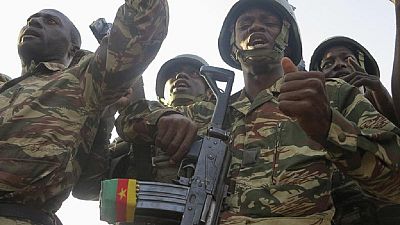


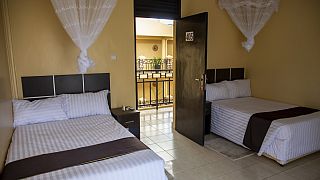
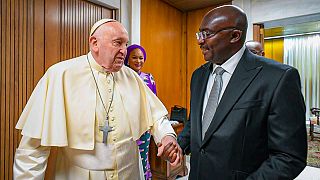
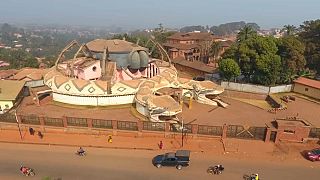


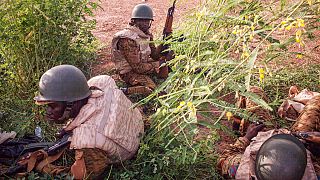
02:02
Cameroon: Football fans react to the controversy over appointment of new coach
01:46
Boxing: Francis Ngannou 'destroyed' by Anthony Joshua in two rounds
Go to video
Boxing: Britain's Anthony Joshua vs Cameroon's Francis Ngannou
01:11
Malaria: Africa's most affected countries commit to end deaths
Go to video
Boxing: after Fury, Ngannou ready to face Joshua
01:05
Cameroonian prosecutors wind up probe into the murder of Martinez Zogo